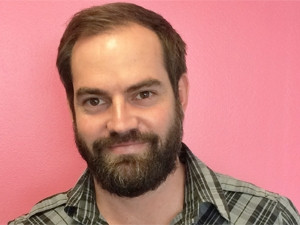
There are a multitude of different digital economy techniques, methodologies, processes and tools on offer today. Choosing the right tool is a combination of understanding the task you need to accomplish and also the dynamics of the team you are working with.
So says Nevo Hadas, partner at &Innovation. Hadas will present at ITWeb Digital Economy Summit 2015, taking place in Johannesburg on 21 April.
During his presentation: "Tools and best practice used internationally to unlock the value of digital transformation", Hadas will provide insight into the importance of looking at different tools that are useful in thinking about and implementing digital transformation.
"Design thinking and its subsets (service design, user experience, customer experience, etc) are often quoted as a key process, and they often are when you aren't 100% sure of what the problem is you are solving. Techniques such as lean canvas are great for testing assumptions and iterating rapidly across a prototype, or TRIZ for looking at innovative solutions to defined challenges."
It's also critical to understand the level of commitment organisationally, as a lot of processes can lead to false assumptions, says Hadas. For example, doing personas without adequate research does not provide real insight - it provides a well-presented opinion, which is very dangerous.
At the event, Hadas will also explore the impact the digital economy has on the tools used, and how they uncover insight that enlivens consumers and creates traction.
According to Hadas, the digital economy has disrupted traditional businesses because it meets consumer needs more directly. Technology has enabled the stripping away of unnecessary complexity, generally created by inefficiency, he says.
"The poster children of this disruptive impact started with Amazon, Google, PayPal, Skype (things we take for granted 15 years later), which were highly virtual, and are felt much more keenly in everyday life today with things such as Uber and AirBnB."
Joining Hadas at the event is Mark Schefermann, director of social media, analytics and strategy at Base2 Agency.
Schefermann will present on: "The importance of evolving business structures and models in the digital age", during which he will provide insight into how business structures and models need to evolve in order to remain relevant and become digital disruptors.
"An organisation's ability and agility to adapt to change will be their greatest competitive advantage in the future. Charles Darwin said it best: it's not the strongest of the species that survive, or the most intelligent, but the one most responsive to change."
Organisational structures need to allow teams to become more flexible and agile in their decision-making processes in terms of taking products or campaigns to market; if they don't, they will quickly lose market share to innovative disruptors, says Schefermann.
Share